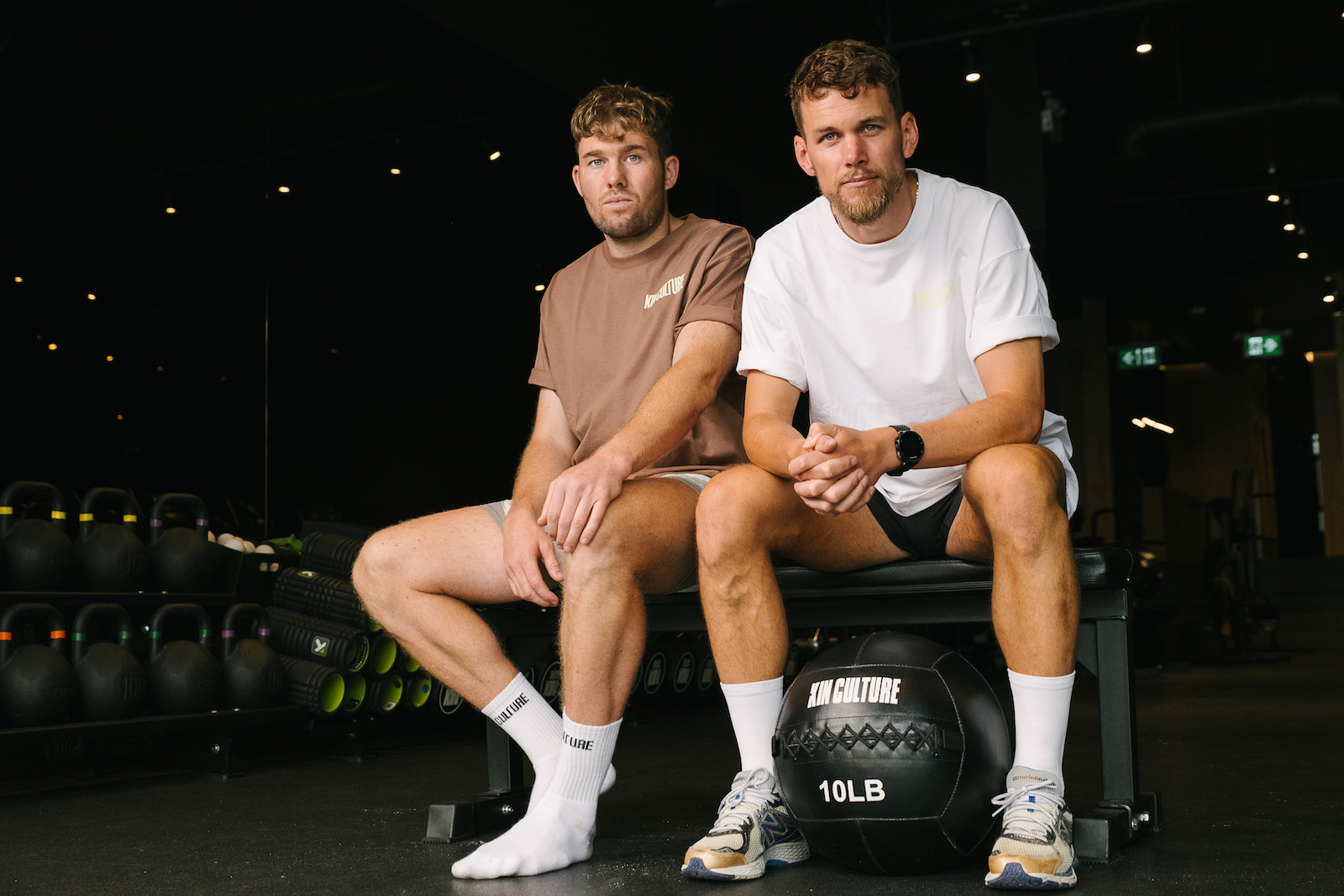Initially, the golf ball massaging the fleshiest parts of the soles of my feet feels painful, but soon the knots release and I move on to my quads and calves. “How are you feeling?” the instructor asks. “How is your body feeling?” I take some time to check in with my health, both physically and mentally, and to reconnect with my breath.
Though it may seem unusual, this is how most classes start at Kin Culture. The instructors tell me I am setting myself up for more efficient workouts by targeting knots, increasing my range of motion, and moving with intention—and they promise I will end each session feeling better than when I began.
“To us, movement is measured by how well you move,” says Sean Collins, one of the cofounders of this unconventional new gym in Kitsilano. “It’s not about how many calories you burn, how much you sweat, or even how many sessions you do in a day.”
He and his business partner, Richard Poole, met in 2016 while working as personal trainers at the same gym. They both felt dismayed by the crammed group-fitness classes with zero personalized attention. When the lockdowns of 2020 put the entire industry on pause, Collins and Poole decided it was time to venture out on their own and provide a new way to experience fitness, one involving small class sizes and a focus on the foundations—rather than the intensity—of movement.
Both men loved playing sports and being active during their youth. Poole has a background in sports physiotherapy and exercise rehabilitation in the UK, while Collins studied recreation and leisure in Ireland. Their unique skills and talents complement each other in the fledgling business.
“Rich is more creative, and he has a clear vision of what Kin Culture will be,” Collins says. The duo agree that Poole is the big-picture dreamer and Collins is the pragmatic planner, and that their bond is more than just a business partnership or even a friendship.
“We’ve travelled together and were tight immediately, even before opening a business together,” Poole says. “It’s similar to having a brother. We can argue, which we do, but we can mend things quickly.”
One topic the pair always agrees on is the importance of tackling deep-rooted cultural and social taboos around men discussing their mental health. “Man up,” “take it on the chin,” “rub some dirt in it”—no matter how it’s phrased, the messaging has long been the same: men should suffer in silence, because showing vulnerability or seeking professional help is a sign of weakness. Collins and Poole want to change these beliefs, and they have started by openly discussing their own battles with body dysmorphia and their complicated relationships with food.
“I was always the sporty kid, but in my teenage years I put on a lot of weight, which affected my ability to play sports,” Collins says. “I lost all the weight in college, and I would make myself get sick because I hated not being able to play sports and was constantly comparing myself to other bodies.” Both men now emphasize the joy of moving one’s body as a reward, to test what each body is capable of, rather than as a punishment.
Kin Culture regularly hosts mental-health workshops on topics such as normalizing therapy and creating community and connection. “It’s a bit selfish on our part,” Poole admits. “We need to learn about it as well, and it’s made easier if more of us are along for the journey.”
The gym also stresses the importance of rest by offering classes that incorporate aspects of yin yoga and include foam rollers and lacrosse balls—to target trigger points and release tension from the body—along with guided intentional breathwork. Poole explains, “It’s a chance to down-regulate, feeling what your body feels and doing what feels relaxing.”
Other classes improve stamina through longer intervals and lower weights, or focus on building strength. Surprisingly, my personal favourite, called Run, emphasizes efficiency instead of speed. Each class is limited to 12 participants, ensuring the intimacy and individual attention usually reserved for personal training sessions.
Kin Culture deliberately invites you to check in, not check out. “If you don’t feel up to it, you don’t have to push yourself,” Collins says. “Listen to your body. We can see the way you move, but we don’t know what’s going on inside your body.” The trainers and instructors are there to nudge you in the right direction, not push you off the deep end. “We want to grow a brand that is more than a physical space,” Collins says. “We want to be open and honest about the struggles we’ve had, the same way we share our triumphs with our community.”
Focusing on my thoughts, concerns, and feelings at the start of each sweat sesh did seem odd at first, but it turns out that I enjoy being prodded to reflect on my emotional and physical well-being. And, as promised, I finish each class feeling better than when I started.
Read more stories about fitness.









